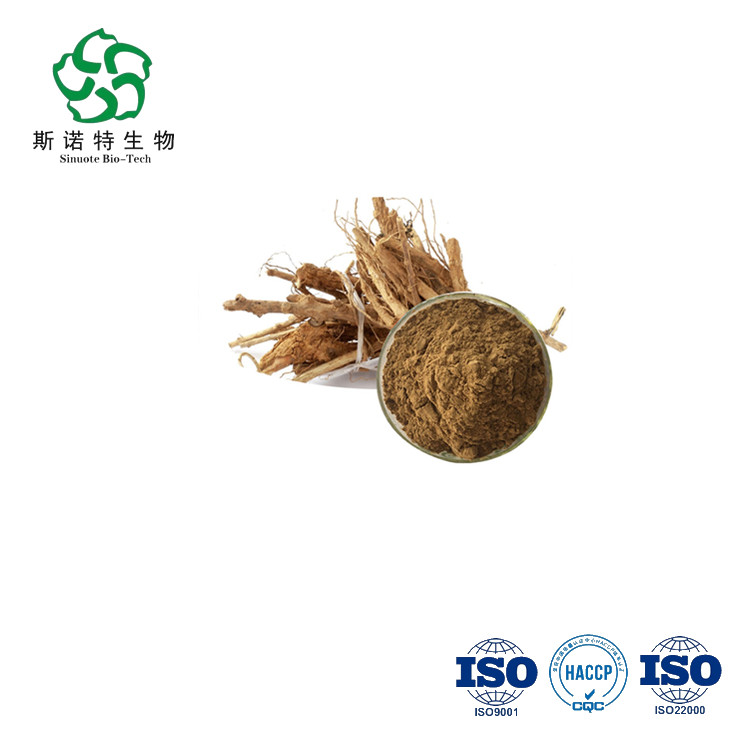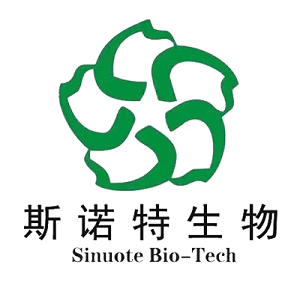The root-bark extract of wolfberry
Wolfberry, also known as goji berry or Lycium barbarum, is a plant commonly used in traditional Chinese medicine. The root-bark extract of wolfberry has been reported to have a variety of pharmacological effects.
1. Antioxidant effect: Wolfberry root-bark extract contains a high level of antioxidants, which can help to neutralize harmful free radicals in the body. This can reduce oxidative stress, inflammation and may help to prevent various diseases.
2. Immunomodulatory effect: The extract of wolfberry root-bark has been found to modulate the immune system by enhancing the function of immune cells such as T cells, B cells, natural killer cells, and macrophages. This can improve the body's ability to fight off infections and may have potential for use in immunotherapy.
3. Neuroprotective effect: Wolfberry root-bark extract has been shown to have neuroprotective effects in various animal models. It can protect neurons from oxidative stress, reduce inflammation in the brain, and enhance neurogenesis (the growth of new neurons). These effects may have potential for use in the prevention and treatment of neurodegenerative diseases such as Alzheimer's and Parkinson's.
4. Anti-cancer effect: Wolfberry root-bark extract has been reported to have anti-cancer effects. It can inhibit the growth and proliferation of cancer cells, induce apoptosis (cell death) in cancer cells, and enhance the anti-tumor activity of immune cells. This suggests that wolfberry root-bark extract may have potential for use in cancer prevention and treatment.
5. Hypoglycemic effect: Wolfberry root-bark extract has been shown to have hypoglycemic effects in animal studies. It can reduce blood glucose levels by increasing insulin sensitivity, enhancing insulin secretion, and inhibiting glucose absorption in the intestine. This suggests that wolfberry root-bark extract may have potential for use in the management of diabetes.
6. Hepatoprotective effect: Wolfberry root-bark extract has been found to have hepatoprotective effects in animal models. It can protect liver cells from oxidative stress and inflammation, improve liver function, and reduce liver damage caused by toxins. This suggests that wolfberry root-bark extract may have potential for use in the prevention and treatment of liver diseases.
About Us:
Fufeng Sinuote Biotechnology Co., Ltd is situated in Fufeng County, Baoji Province, China within the Jiangba Science and Technology industrial park. Our primary focus is on the research and development, production, and promotion of plant extracts. Our company possesses various qualifications such as SC, export license, commodity inspection qualification, external inspection report, HACCP, ISO22000, ISO9001, and is also certified as a high-tech enterprise. We manufacture over 600 types of plant extracts and have our own plant planting base covering an area of more than 1000000 square meters in Gansu & Ningxia Province, China. With over a decade of experience in plant cultivation, we can maintain better control over plant quality, which results in better-quality extract powder. Our business has been operating in the Plant Extract industry for over ten years, and we have received positive feedback from our numerous clients in many countries.
We also provide the following products: Food Additives Powder, Fruit Powder, Ginseng Extract, Green Tea Extract, Gynostemma Pentaphyllum Extract, Help Sleeping Plant Extract, Herb Ginseng Peptide, Herbal Extract.





































